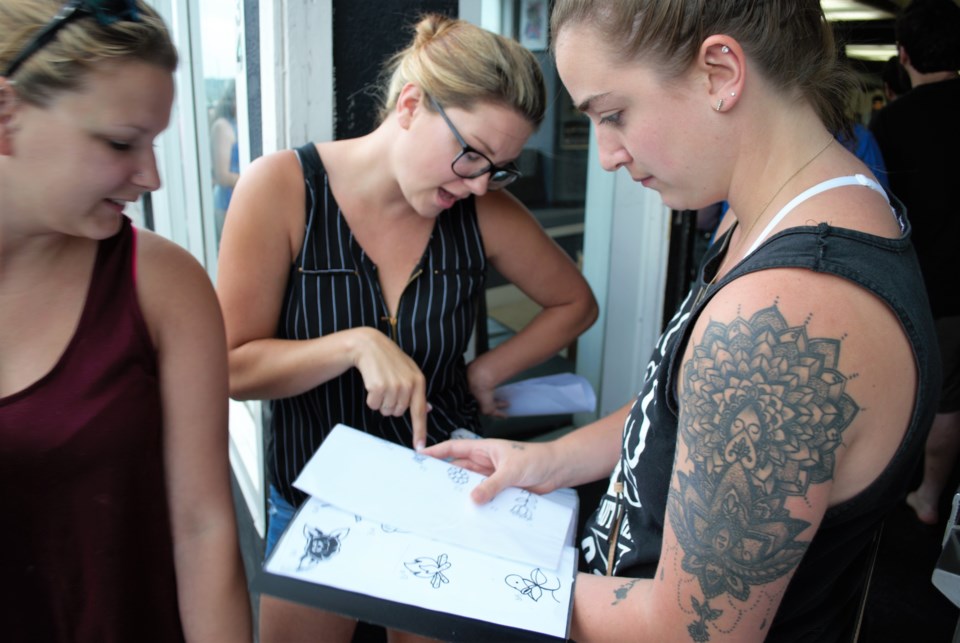About one reader in five has at least one tattoo, and within that group 86 per cent have no regrets, an online poll showed last week.
By far the most dramatic difference had to do with age. Among readers under 50, roughly half have some kind of ink, and only about a third are closed to the idea. That's not at all true of older readers:
Women are somewhat more open to the idea than men:
There is a difference, but not a very dramatic one, based on income, with the two highest brackets being more open the idea of a tattoo:
Broken down by voting intention, we get a revealing look at the cultures behind parties; it's much more interesting than a simple left-right split.
Liberals are the most tattoo-averse, which tracks consistently with our other polls showing them opting for the most broadly small-c conservative option in many cases, like voting to retain the monarchy or the separate school system. (Liberals also skew older, which may be part of the dynamic.)
Conservatives, in the middle on this issue, may be confusingly split between their libertarian and social conservative wings; we've seen this on other issues. The PPC at the bottom, more open to tattoos than New Democrats, tracks with a libertarian/countercultural right identity, though I guess we could ask how countercultural tattoos are at this point.
That pattern is repeated with the next two polls: openness to tattoos is correlated with opposition to strong gun control, and also to the use of the Emergencies Act in 2022.
One of the most consistent patterns is that people who are open to tattoos are also open to experiences that involve some balance of pleasure and risk related to the body, perhaps navigating some level of stigma.
Dog people are somewhat more open to tattoos than cat people, though the difference isn't strong. The much more striking element is that over 80 per cent of people who don't have or want a pet don't have or want a tattoo.
There's also a strong relationship with attendance at religious services, though this almost certainly can't be disentangled from the age-related relationship we saw above.



